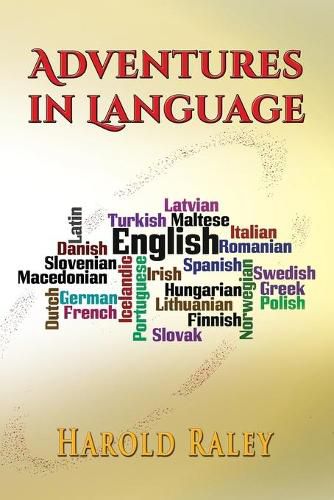Readings Newsletter
Become a Readings Member to make your shopping experience even easier.
Sign in or sign up for free!
You’re not far away from qualifying for FREE standard shipping within Australia
You’ve qualified for FREE standard shipping within Australia
The cart is loading…






This title is printed to order. This book may have been self-published. If so, we cannot guarantee the quality of the content. In the main most books will have gone through the editing process however some may not. We therefore suggest that you be aware of this before ordering this book. If in doubt check either the author or publisher’s details as we are unable to accept any returns unless they are faulty. Please contact us if you have any questions.
These articles on the facts, fictions, and oddities of English, Spanish, French, Latin, German, and several other languages reflect several decades spent as a writer and professor of foreign languages, English, humanities, and philosophy. The articles in this volume consist of newspaper columns published over a period of several years.
Although there are thematic threads that link the articles internally, they are not arranged in any chronological way. Each stands on its own merits. For the most part, they present specific features of the individual languages in question, but in other cases, there are general considerations of the history and kinship of languages and language families, along with such related topics as surnames and place names.
Even though at times I point out obvious errors in the languages as they are currently structured, I realize that the rules of grammar and usage in English or any other living language are, or can be, subject to change. This may not be true of, say, ancient Sanskrit, but then we note that despite its perfection–or perhaps because of it–ancient Sanskrit ceased to be a spoken tongue many centuries ago.
Over the ages thinkers have pondered the qualities that define humanity and set mankind apart from other species. In my view, no stronger case than language can be made for human uniqueness. Animals can communicate and mimic but they cannot speak. Language, sung, recited, or spoken, is archly human, and for that reason also deeply mysterious, beautiful, and fascinating.
$9.00 standard shipping within Australia
FREE standard shipping within Australia for orders over $100.00
Express & International shipping calculated at checkout
This title is printed to order. This book may have been self-published. If so, we cannot guarantee the quality of the content. In the main most books will have gone through the editing process however some may not. We therefore suggest that you be aware of this before ordering this book. If in doubt check either the author or publisher’s details as we are unable to accept any returns unless they are faulty. Please contact us if you have any questions.
These articles on the facts, fictions, and oddities of English, Spanish, French, Latin, German, and several other languages reflect several decades spent as a writer and professor of foreign languages, English, humanities, and philosophy. The articles in this volume consist of newspaper columns published over a period of several years.
Although there are thematic threads that link the articles internally, they are not arranged in any chronological way. Each stands on its own merits. For the most part, they present specific features of the individual languages in question, but in other cases, there are general considerations of the history and kinship of languages and language families, along with such related topics as surnames and place names.
Even though at times I point out obvious errors in the languages as they are currently structured, I realize that the rules of grammar and usage in English or any other living language are, or can be, subject to change. This may not be true of, say, ancient Sanskrit, but then we note that despite its perfection–or perhaps because of it–ancient Sanskrit ceased to be a spoken tongue many centuries ago.
Over the ages thinkers have pondered the qualities that define humanity and set mankind apart from other species. In my view, no stronger case than language can be made for human uniqueness. Animals can communicate and mimic but they cannot speak. Language, sung, recited, or spoken, is archly human, and for that reason also deeply mysterious, beautiful, and fascinating.